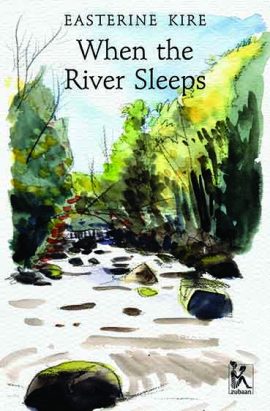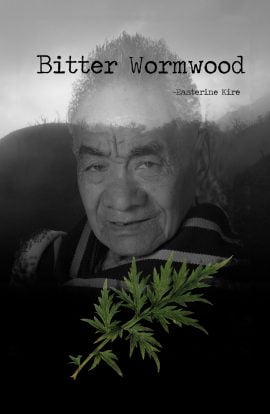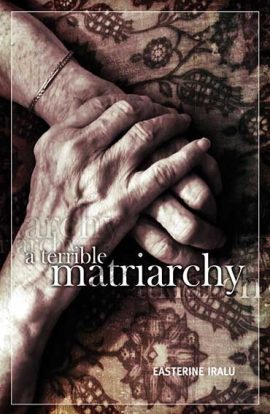No products in the cart.
Return To Shop
Log in / Sign in
Login
Register
Filter by price
Books, Books from the North East, Books from the North East, e-Books, Feminism In India Recommends, Feminism In India Recommends, Fiction, Fiction
When the River Sleeps
₹ 235 – ₹ 495Select format This product has multiple variants. The options may be chosen on the product pageBitter Wormwood
₹ 235 – ₹ 445Select format This product has multiple variants. The options may be chosen on the product pageA Terrible Matriarchy
₹ 350 – ₹ 495Select format This product has multiple variants. The options may be chosen on the product pageWinner of the Hindu Prize for Fiction, 2015.
A lone hunter, Vilie, sets out to find the river of his dreams: to wrest from its sleeping waters a stone that will give him untold power. It is a dangerous quest, for not only must he overcome unquiet spirits, vengeful sorceresses and daemons of the forest, there are men – armed with guns – on his trail. Easterine Kire’s novel transports the reader to the remote mountains of Nagaland, a place alive with natural wonder and supernatural enchantment. As Vilie treks through the forest on the trail of his dream, we are also swept along in this powerful narrative and walk alongside him in a world where the spirits are every bit as real as men and women, and where danger – or salvation – lies at every turn.
Kire’s powerful narrative invites us into the lives and hearts of the people of Nagaland: the rituals and beliefs, their reverence for the land, their close-knit communities – the rhythms of a life lived in harmony with their natural surroundings. It is against this spellbinding backdrop that Kire tells the story of a solitary man driven by the mysterious pull of a dream, who must overcome weretigers and malignant widow-spirits in the search for his heart’s desire.
“…reminiscent of Marquez’s magic realism and Leslie Silko’s Native-American story-telling. At the end, though, this is a Naga story, unmistakably so, in its sense of place, time, and oral traditions.”
Paulus Pimomo, Central Washington University, USA
Kohima 2007. A young man is gunned down in cold blood, the latest in a long list of casualties of the conflict that has scarred the landscape and brutalised the people of Nagaland.
Easterine Kire’s brilliant novel traces the history of this bloody conflict through the life of one man, Mose, whose childhood, his family, traditions and rituals, paint a picture of a peaceful way of life, now long vanished. The coming of the radio is one of the markers of change, something that connects Mose’s family and community to the wider world. It brings knowledge of Partition, independence, a land called America and more. Growing up, Mose and his friends become involved in the Naga struggle for independence, and are caught in a maelstrom of violence – protest and repression, attack and reprisal – that ends up ripping communities apart.
Kire’s unusual story takes its name from a herb, bitter wormwood, traditionally believed to keep evil and ‘bad’ spirits away. For the Nagas, facing violence all around, the herb becomes a powerful talisman: ‘we sure could do with some of that old magic now.’ Bitter Wormwood is a poignant exploration of the human costs that lie behind political headlines in one of India’s most beautiful and misunderstood regions.
“Easterine Kire is the keeper of her people’s memory, their griot. She is a master of the unadorned language that moves because of the power of its evocative simplicity.” — Paul Pimomo
EASTERINE KIRE is a writer, poet and translator. She is Nagaland’s first novelist in the English language. Her book, When the River Sleeps (Zubaan, 2014), won the 2015 Hindu Prize for Fiction. She is also the author of A Naga Village Remembered (2003), A Terrible Matriarchy (Zubaan, 2007), Mari (2010), Life on Hold (2011), the Sahitya Akademi-honoured Son of the Thundercloud (2016), Don’t Run, My Love (2017), and The Rain-Maiden and the Bear-Man (2021). She lives in Norway.
“I was the youngest in a family of five children. I sometimes felt I was an afterthought, and maybe Father and Mother didn’t quite know what to do with me. Also, because I was a girl after four boys they never seemed to be sure whether to buy me girls’ clothing or let me wear leftover boys’ clothing.”
Young Dielieno is five years old when she is sent off to live with her disciplinarian grandmother who wants her to grow up to be a good Naga wife and mother. According to Grandmother, girls didn’t need an education, they didn’t need love and affection or time to play or even a good piece of meat with their gravy! Naturally Dielieno hates her with a vengeance.
This is the evocative tale of a young girl growing up in a traditional society in India’s Northeast, which is in the midst of tremendous change.
Easterine Kire writes about a place and a people that she knows well and is a part of and brings to the storytelling a lyrical beauty which can on occasion chill the reader with its realistic portrayals of the spirits of the dead that inhabit the quiet hills and valleys of Nagaland.
_____________________________________________________________________________________
EASTERINE KIRE has written and published a number of short stories and anthologies of poetry. She was a guest of Norwegian PEN from 2005-2007 and during this period, travelled and spoke extensively on the idea of self-exile, writing in another country, Naga literature and the conflicted state of Nagaland. She is author of A Naga Village Remembered, Mari and Bitter Wormwood.
Categories
Filter by
Product tags
academic
AFSPA
Bangladesh
caste
conflict
Dalit women
e-essays
feminism
feminist
feminist fiction
Fiction
gender
gender studies
health
history
impunity
India
Kashmir
legislation
Literary Fiction
Memoir
Nagaland
New Editions
Non-Fiction
Northeast India
Pakistan
Poetry
sexual violence
Short Stories
sociology
South Asia
state impunity
SVI
SVI Project
Top Ten
translation
violence
violence against women
warehouse wonders
women's activism
women writer
women writers
young zubaan
zubaanbooks
Zubaan Classics
Contact Us
© Zubaan 2019. Site Design by Avinash Kuduvalli.
Payments on this site are handled by CCAvenue.






